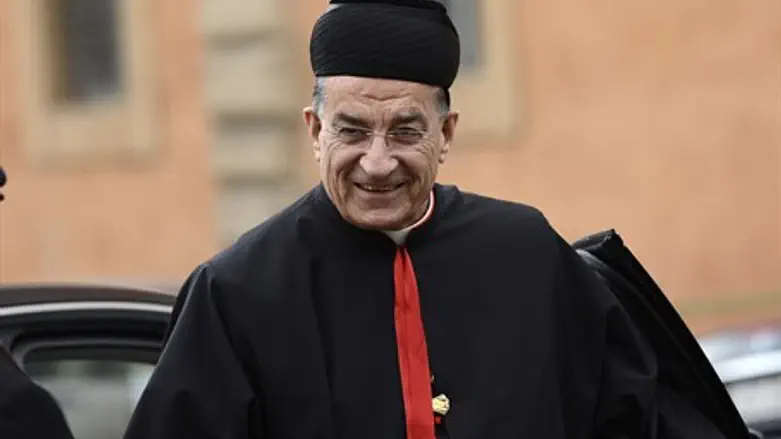
The Lebanon-based Maronite patriarch's historic first visit to Jerusalem to welcome Pope Francis is aimed at strengthening the "Christian presence" in the Middle East, a church official said Wednesday.
Patriarch Beshara Rai's visit was announced earlier this month, prompting condemnation from media close to Lebanon's Shiite Muslim terror group Hezbollah, which said traveling to Israel would be a "sin."
"This visit is to assure and confirm the Christian presence and identity in the face of all the attempts to weaken the Eastern Christian historical presence in the Middle East," the Maronite archbishop in the Holy Land, Mussa al-Hajj, told reporters in the Israeli city of Haifa.
"Patriarch Beshara Rai aims to surpass borders," Hajj said.
Rai, whose church is the largest Christian denomination in Lebanon, said on May 3 he would travel to the Holy Land to welcome the Roman Catholic pontiff during his May 24-26 visit.
He is set to be the first patriarch to do so since the 1948 creation of Israel, which Lebanon is technically still at war with.
In response, the leading Arab nationalist daily As-Safir ran a critical piece headlined "Historic sin: Rai goes to Israel".
The daily argued the trip was a "dangerous precedent" that would "not serve the interests of Lebanon and the Lebanese, nor those of Palestine and the Palestinians nor Christians and Christianity".
It speculated on whether the patriarch, who is also a Roman Catholic cardinal, "would shake hands with Israeli leaders who will be in the front row to welcome Pope Francis to Jerusalem".
Even if he does not, he would still have to coordinate his trip with Israeli officials, the paper added, claiming the visit "is part of the normalization between the head of the Catholic church and the occupier (Israel)".
Al-Akhbar, another newspaper close to Hezbollah, said a group of Lebanese politicians will try to dissuade Rai "from visiting Jerusalem as long as it is under Israeli occupation, which would signify a normalization with the occupier."
Lebanese citizens are banned from entering Israel, but Maronite clergy may to travel to the Holy Land to minister to the estimated 10,000 faithful there.
Rai insisted that the trip has no political significance.
The Maronite church has its roots in the Fertile Crescent of the early 5th century. It is named after St Maron, a hermit who attracted many followers.
A century later, the Maronites fled persecution and sought refuge in the mountains of what is now Lebanon.
They have their own theology, spirituality, liturgy and code of canon law, but are in full communion with Rome.